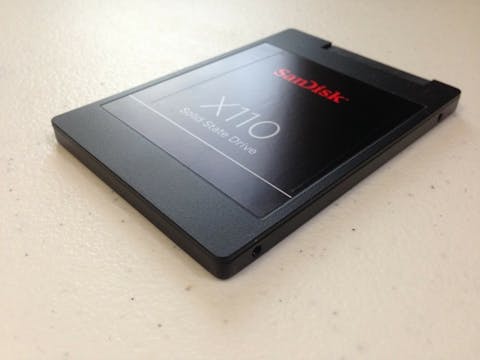Flash memory and software maker SanDisk Corporation (NASDAQ:SNDK) on Wednesday released its earnings for the second quarter, in a report that delivered a positive surprise. The company’s net income for the period amounted to $81 million, equivalent to $0.38 per share, beating analysts’ consensus estimate of $0.34 per share. On a year over year basis, however, the profit was down by 70.4%. The company also delivered revenues of $1.24 billion, also beating analysts’ forecast of $1.20 billion, although it represented a 24% decline on the year. Ahead of the earnings release, expectations were low on the stock, owing to challenges in sales of embedded parts used in the making of drives that deliver faster speeds and greater reliability compared to the traditional drives. Nevertheless, the report revealed a 39% rise in retail sales as a percentage of the company’s total revenue for the quarter, up from 33% a year ago. The company posted its first revenue drop in two years at the end of first quarter of 2015. With analysts expecting lackluster performance and the management having also forecasted a fall in revenue, going as far as laying down strategies to trim its non-factory workforce by 5%, the future seemed uncertain. Its latest earnings results are therefore a harbinger of a healthier third quarter.

Over the past three months, insider trading surrounding SanDisk has not been very active, with a small number of open-market transactions, which is usually typical for large companies. However, what we tend to focus more is the hedge fund activity that a company witnesses.
At Insider Monkey, we track hedge funds’ moves in order to identify actionable patterns and profit from them. Our research has shown that hedge funds’ large-cap stock picks historically underperformed the S&P 500 Total Return Index by an average of seven basis points per month between 1999 and 2012. On the other hand, the 15 most popular small-cap stocks among hedge funds outperformed the S&P 500 Index by an average of 95 basis points per month (read more details here). Since the official launch of our small-cap strategy in August 2012, it has performed just as predicted, returning over 135% and beating the market by more than 55 percentage points. We believe the data is clear: investors will be better off by focusing on small-cap stocks utilizing hedge fund expertise (while avoiding their high fees at the same time) rather than large-cap stocks.
With that in mind, let’s have a quick look at what hedge funds think about SanDisk Corporation (NASDAQ:SNDK). Going into the second quarter, hedge funds seemed bearish on the stock. A total of 40 hedge funds out of the more than 700 that we tracked were long on the stock with aggregate investment value of $1.35 billion, down from 58 investors with $2.76 billion going into the first quarter of 2015. The biggest shareholder at the end of March was Iridian Asset Management, led by David Cohen and Harold Levy. The fund held a total of 6.35 million shares after raising its position by 25% on the quarter. Michael Lowenstein’s Kensico Capital was also invested in the stock with 6.27 million shares, representing 7.89% of its total equity portfolio. Jean-Marie Eveillard‘s First Eagle Investment Management came in a distant third with 1.97 million shares, having trimmed its position by 12%.
The stock of SanDisk Corporation (NASDAQ:SNDK) jumped on the back of the earnings announcement, sending the stock up by more than 7% on Wednesday. On Thursday, the stock was trading at about 17% in green. The rise is good news to investors who’ve had to put up with poor performance during the year, seeing the stock fall by more than 40% year-to-date.
In the current quarter, the company is expecting an increase in revenue, forecasting between $1.35 and $1.45 billion, while analysts expect $1.41 billion. With the company’s sales expected to rise, and having introduced products that are likely to see revenue growth, many investors will be rushing to open new or up their positions in the stock. SanDisk Corporation’s charge into the external storage segment and its promise to deliver faster, more reliable, and cost effective solid state drives is likely to boost its revenue and spark greater interest.
Disclosure: None




